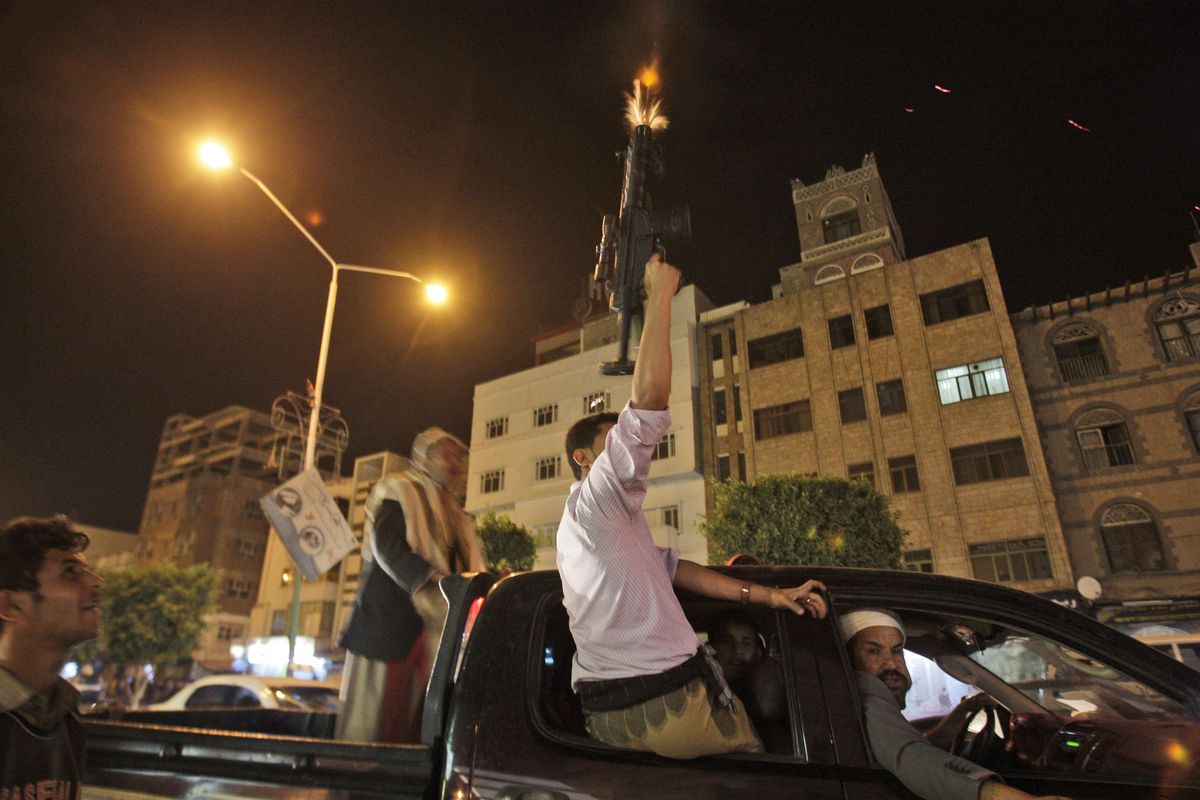TV appearance shows worn Saleh
Yemen’s president makes first public showing since bombing

SANAA, Yemen – For the first time since he was gravely wounded by an explosion in the presidential compound’s mosque, Yemeni President Ali Abdullah Saleh appeared on television here Thursday, recognizable but obviously still recovering from major injuries.
Instead of his usual suit and tie, the president wore a flowing Arab shirt dress known as a thobe and kept his head covered with a traditional head scarf, possibly to hide the serious burns he is rumored to have suffered. His complexion appeared significantly darker than before the June 3 attack, and his prominent moustache was gone, replaced with a ragged, stubbly beard. His hands and arms were covered with bandages, and he sat rigidly as he spoke. His voice was weak and his breathing labored.
He acknowledged that he had undergone eight operations since he was flown to Saudi Arabia for treatment and that many top officials of his government – including the speaker of parliament, the prime minister, the deputy prime minister and the governor of Sanaa – had been injured in the attack.
But he gave no hint that he intended to step down from office, something protesters have demanded in huge demonstrations that began in February, and he sounded defiant as he criticized the protesters as “misunderstanding democracy.”
He didn’t directly address his plans for returning to Yemen.
Saleh’s appearance came after weeks of speculation about his condition and the attack, which struck the presidential mosque as Saleh and other government notables were praying.
Immediately after the explosion, Saleh supporters blamed armed political opposition groups who were said to have targeted the building with artillery or mortars. But officials have since suggested that the explosion was caused by a bomb planted in the mosque, and the identities of the attackers remain the subject of speculation. On Thursday, Saleh referred to them as “terrorist elements.”